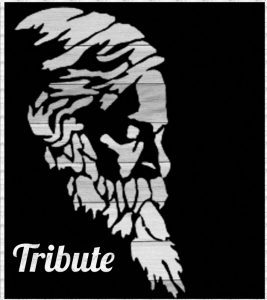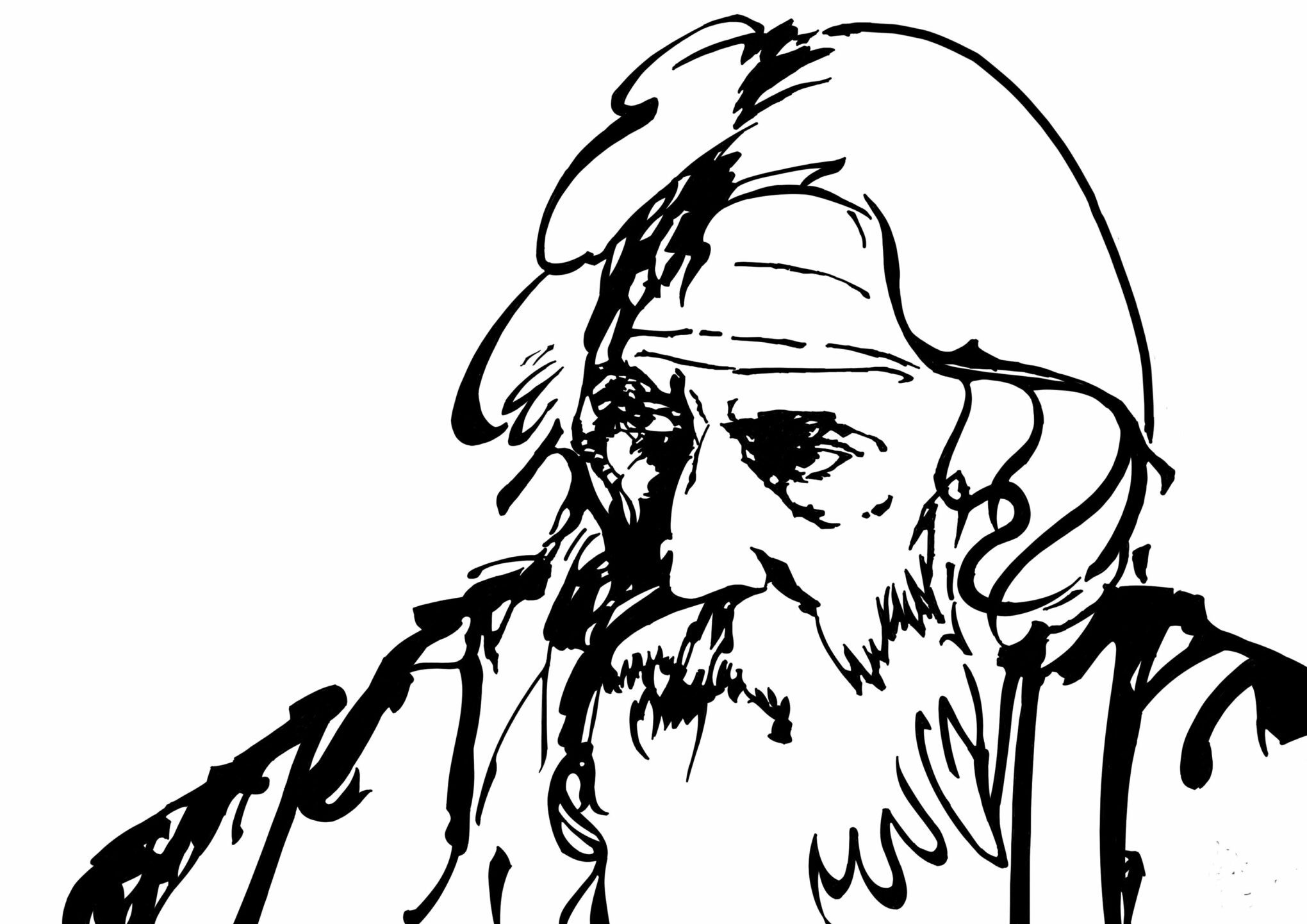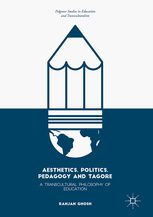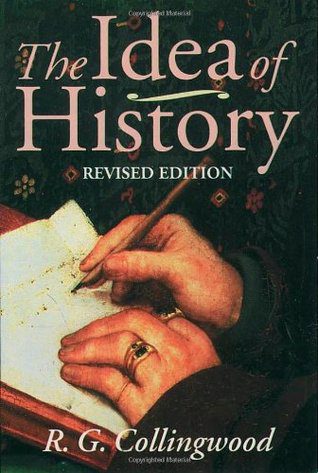Reading Time: 6 minutes

Tagore rested on his desire for a far-off planet, listened to the invitation of a dream and did not allow the spaceship to rust. His journeys and envisagements, however, repeatedly narrated a new order without losing their connection with the world outside. Tagore’s projects – primarily his ashram school, the university and institutions in rural reconstructionism – could not have been isolated workshops operated and perpetuated through megalomania, self-immunity and an indulgent harvest of a swellhead nativist. Ideas across continents and cultures have always expanded on each other, opines Ranjan, in his erudite, in-depth research, as Special Feature. A Different Truths exclusive.
Tagore’s notion of the school can be read alongside the Greek word scholé which means ‘free time’: rest, delay, study, discussion, lecture, school building. His school was envisaged through a fresh engagement with ‘time’ (not the destined time) and ‘paedagogus’ where ‘complex’ investments in educational philosophy and execution were clearly in prominence. Learning need not always be telic; education, on occasions, can act on the opinion of time. Schooling can often begin when the school is under suspension. Jan Masschelein observes that ‘it is formative and transformative: a world takes place, “things” appear, but in their appearing also the individual is transformed and co-appears and an interest in the sense of inter-esse can develop.’ This leads us to the vexed issue of caring for the self ‘as being a care for what inter-ests’. For Tagore, within the metaphysics of scholé, knowing the world was as important as what the world tells me or us – a conjugality in ‘being exposed together’. Jean-François Lyotard writes about his dream of being an astronaut who lands on a distant planet where children laugh in splits hearing that on earth a school is compulsory and it comes with homework to attend to every evening. He decides to spend some time with the children on this planet.
Education is about leading out: not always the outside but the far inside which cannot be reached ‘by uprooting oneself but by plunging deep within towards what is most intimate, where lies desire’. In that sense, Tagore’s school was his own education, being led out of himself, a dependence not on the colonial outside but his Eros inside. Tagore rested on his desire for a far-off planet, listened to the invitation of a dream and did not allow the spaceship to rust. His journeys and envisagements, however, repeatedly narrated a new order without losing their connection with the world outside. Tagore’s projects – primarily his ashram school, the university and institutions in rural reconstructionism – could not have been isolated workshops operated and perpetuated through megalomania, self-immunity and an indulgent harvest of a swellhead nativist. Ideas across continents and cultures have always expanded on each other, contributing in their depth and peculiarity towards a reflective and jointly architectured establishment which does not need historical and evidential approbation and corroboration always.
John Comenius (1592–1670), who might be called the father of modern educational theory, used the model of the printing press to explain how education took place. ‘Instead of paper, we have pupils’, Comenius wrote, ‘pupils whose minds have to be impressed with the symbols of knowledge. Instead of type, we have class books and the rest of the apparatus devised to facilitate the operation of teaching. The ink is replaced by the voice of the masters since it is this that conveys information to the minds of the listener, while the press is school discipline, which keeps the pupils up to their work and compels them to learn.’ As against the printing press model of transmission politics in education, Tagore executed a rare mix of vigilance, supervision, discipline, creativity and freedom – something that, to an extent, resembles A. N. Whitehead’s identification of the stages of schooling as part of his aims for education: romance which brings wonder and joy, the precision that inculcates values through self-discipline and freshness that teaching imports. It is possible to see in Tagore’s ideas on progressive education a Deweyan emphasis on the ‘life experience of the learner’ – a philosophy of education that is largely founded on a philosophy of experience. However, Tagore’s emphasis on schooling was less emphatic about social progress and reform than John Dewey’s faith in this direction. The interest in Swaraj – the self-reconstruction – was more in keeping with Tagore’s aesthetic schooling that thrived in a subtle mode through the dynamics of a reformative variant in emotion and sensitivity conflated with moral and ethical action and thought. But the meditative proximity of the two thinkers becomes pronounced when Dewey argues in School and Society that ‘occupations in the school shall not be mere practical devices or modes of routine employment, the gaining of better technical skills as cooks, seamstresses or carpenters, but active centres of scientific insight into natural materials and processes, points of departure whence children shall be led out into a realization of the historical development of man.’ Dewey’s paedo-pedagogy implicates the denial of complete freedom to the child in his or her development. The child’s growth must have a heavy reliance on supervision and an interactive engagement with the world of adults and principles of everyday pragmatism. Growth in education is a man-nature contact, a negotiation built around intergenerational ‘transmission’ of actions, thoughts, feelings and habits. The naturalness and socialisation come into an adroit contact – natural outgrowth teaming with external direction. Tagore’s idea of ‘control’ approximates Dewey’s, but not without differences. His aesthetic education had more freedom, plasticity, romantic spontaneity and organic outpouring than Dewey was likely to admit or allow. Tagore gave more leverage to the mind as against Dewey’s emphasis on trying to build more things into the mind externally. For Dewey, the environment of the mind is connected with the social environment – ‘naturalistic humanism’. Tagore, like Dewey, endorsed the efficacy of the natural or native powers in initiating education but his reflective education would still admit that learning could not be a matter of the ‘spontaneous overflow of the unlearned powers’ alone.
In The Idea of History, British philosopher-historian Roger Collingwood writes:
Man, who desires to know everything, desires to know himself. Nor is he only one (even if, to himself, perhaps the most interesting) among the things he desires to know. Without some knowledge of himself, his knowledge of other things is imperfect: for to know something without knowing that one knows it is only a half-knowing, and to know that one knows is to know oneself. Self-knowledge is desirable and important to man, not only for its own sake, but as a condition without which no other knowledge can be critically justified and securely based. (R. G. Collingwood, The Idea of History (Oxford: Clarendon Press, 1993), 292. (Collingwood 1993)
This is not an ethics of individualism but a way to know more about the system one grows into and lives within. Students must labour to know their tradition, their points of cultural emergence, to know about others and become knowledgeable about the world outside growing into ‘an active and vigorous contributor to the life of the world’.
Self-knowledge for Tagore was a conscious dynamic activity, closely dependent on ‘reflective education’ with its stimulation derived from living experiences where ‘reasoning is sharpened and perfected by disciplined discussion’ and students are initiated into reflecting ‘effectively on the values that are constantly being urged on them’. On the inductive, instructive and transmission principles of education, Tagore’s position is somewhere between Rousseau and John Dewey – not strictly the organismic model and the neo-Lamarckian, adaptive, problem-solving attitude that we associate with Dewey. Educational growth for Tagore was neither authoritarian nor overindulgent organicity as emphasised by Rousseau at the beginning of his Emile. Education must acknowledge growth as internal, organic, natural and, inevitably, adaptive to the changing environmental conditions – a complicated dialectic between education as task verb and achievement verb where, most often, Tagore sought the former. Wonder, surprise and imagination must find their neighbourhood among crises, real problems, attrition and the adaptive modes of survival – a pedagogy of ‘unselfing’ where ‘to attend is to care, to learn to desire to learn’, a kind of Iris Murdochian way of integrating the ‘intellectual’ with the ‘moral’ and the techne.
Tagore, however, could not have disapproved the organisational denomination in William James’s view of education that saw habits, a stream of experience and conduct as closely integrated. Habits are formed within a revisionary aesthetic where learning is a continual pattern in behavioural novelisation pertaining to changing contexts and voluntary functionality: ‘We think the thing now in one context, now in another; now in a definite image, now in a symbol. Sometimes our sense of its identity pertains to the mere fringe, sometimes it involves the nucleus, of our thought.
He has left behind a legacy of cross-traditional thinking and remarkable congeries of ideas that have percolated beyond his immediate context and culture of understanding. So reading Tagore now is more about reading Tagore ‘with’ – in a productive hyphen. My book[i] is about throwing Tagore into the open, challenging any school-centric evaluation of his works and ways, critiquing the multiversity of his institutional and informational investments and ensuring that he roundtables his experiments, experiences and emigrations with the thoughts and doings of a riveting and apparently surprising gallery of thinkers.
Rewriting Tagore is making him soak up the exhilaration and entropy of being with, a disturbing settlement in the trans-now. In the delightfully frustrating enterprise to wrap him within the conventional ends of a book, Tagore becomes an experience in disquiet. Reading Tagore and knowing him is theft, experiencing him is a perversion, revisiting him is illegitimacy and ruin.
Photos from the Internet
[i] Aesthetics, Politics, Pedagogy, Tagore: Towards a Transcultural Philosophy of Education (London: Palgrave Macmillan, 2017)
#AestheticsAndTagore #PoliticsAndTagore #Tagore #TributeToTagore #PhilosophyAndTagore #DifferentTruths


















